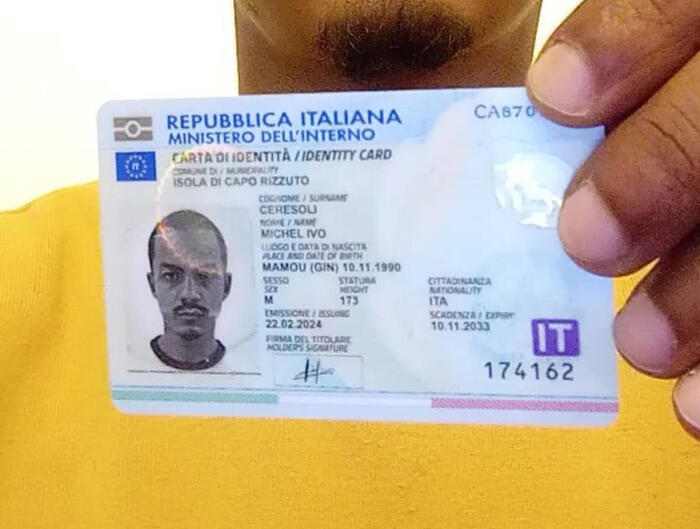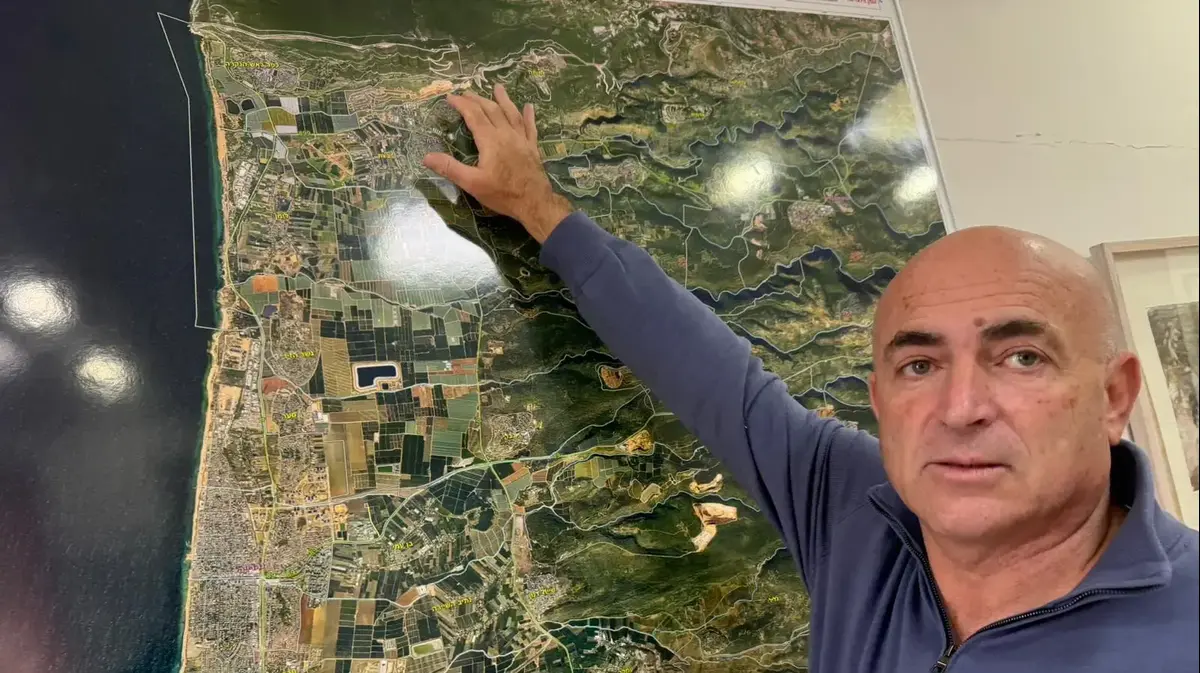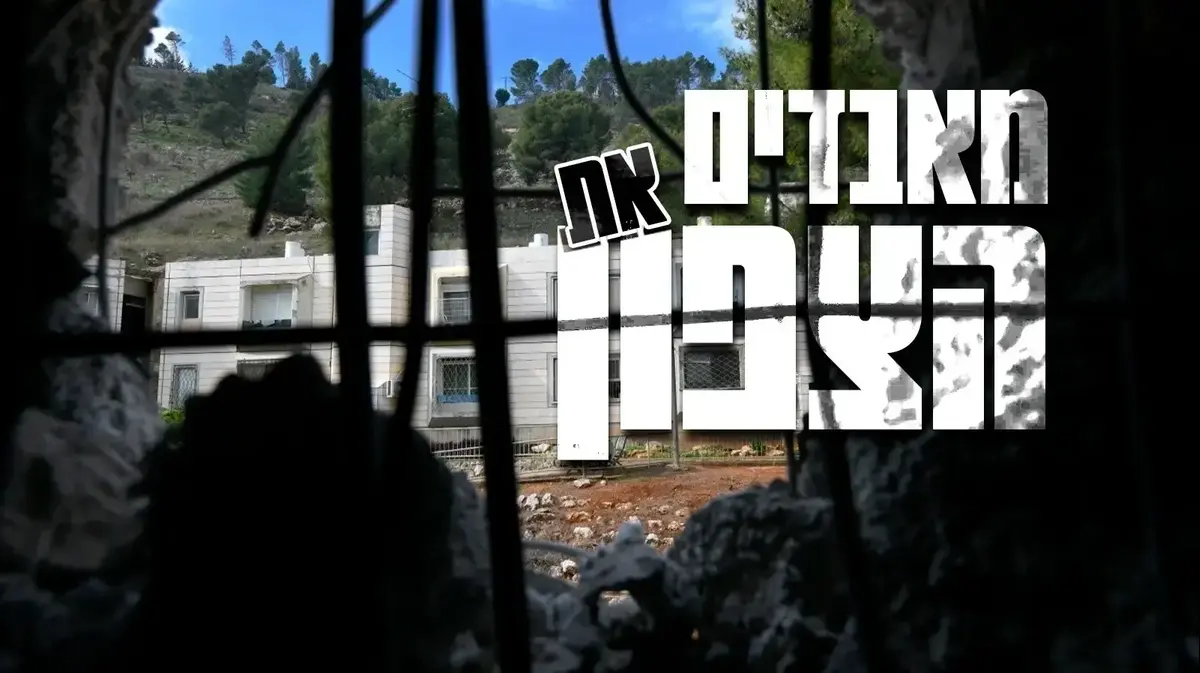Mohamed, a 21-year-old Moroccan, does not stop uploading videos to TikTok.
He sets the scene with Arabic music for the images of two bulldozers collecting rubble.
They are the remains of what was his home until a few days ago, the Walili settlement.
This shanty town was demolished on Monday by the Níjar City Council (Almería, 26,126 inhabitants) with the support of a court order and a large police force.
Most of its 500 neighbors were left homeless.
And, like him, they have moved to the fifty similar camps that exist in the region, where some 3,000 people survive.
“Life is difficult, but there are no papers, there is no housing.
We have no other choice,” says Mohamed, who works in a greenhouse without a contract for five euros an hour.
Walili was a messy neighborhood, with no drinking water and dozens of rudimentary connections to the electricity grid.
Its small mosque, its houses made with waste from intensive agriculture and the surrounding garbage are now rubble that has filled more than 200 trucks this week.
The poor conditions of the place have served as an argument for its demolition, although they are the same as in all the nearby towns that are still standing.
Social organizations believe that it was the first to fall due to its proximity to the Cabo de Gata highway and it gave a bad image for tourism and businessmen.
The Níjar City Council maintains that it has been evicted due to insecurity.
"People's lives were at serious risk," said the mayor, Esperanza Pérez (PSOE), on Friday in the municipal plenary session,
where he set the municipal performance as a model for all of Spain.
While he was speaking, the Derecho a Techo platform launched a harsh statement against him for the demolition, they say, executed without residential alternatives for those who had a roof there.
They believe that it is an "electoralist" measure.
The Socialists won in the last municipal elections in Níjar;
in the general and regional elections, Vox and the PP devastated.
A young sub-Saharan man collects water from one of the three sources available in the Atochares settlement in Níjar (Almería).
PACO BRIDGES
Nora, a young man who lives in the settlement of Atochares.PACO PUENTES
A group of women after collecting donated food at the Light for the Nations Association in Níjar.PACO PUENTES
DVD1146Níjar/Almería/02-01-2023: A classroom used for workshops in the Atochares settlement in Níjar, Almería.PHOTO: PACO PUENTES/ELPAISPACO PUENTES
A man walks over some greenhouses in Níjar loaded with plastic.PACO PUENTES
General view of the settlement of Atochares in Níjar.PACO PUENTES
Aerial view of the old settlement of Walili in Níjar.PACO PUENTES
Scrap metal collection after the demolition of the Walili settlement in Níjar.PACO PUENTES
Scrap metal collection after the demolition of the Walili settlement.PACO PUENTES
Settlement of Atochares in Níjar.PACO PUENTES
Invisible between greenhouses, there are still many disorderly neighborhoods that contrast with the towns with straight streets and brick houses built in the sixties by the National Institute of Colonization of Franco.
Vegetable production skyrocketed three decades later under plastic.
Companies grew and manpower was needed, most of which came from Africa.
Nobody noticed that they would have to live somewhere, and many migrant workers ended up in the hundreds of shanty towns in Almería, most of them born between 2000 and 2005, according to a study by the Cepaim Foundation.
Today rural shanty towns are a chronic problem —here and in other areas like Huelva— to which the administrations have not provided a real solution, blaming each other.
The sea of plastic leaks with numerous cracks through which human rights escape.
“To the field with rights!
Your boss is not your owner”, can be read on a wall of the industrial estate in the Los Grillos neighborhood, eight kilometers from Walili.
The industrial warehouse where Níjar has set up an emergency center for the evicted is located there.
Barely thirty stayed to sleep.
One of them is Hakim, born in Larache and who turned 26 on Wednesday.
He asks to change his name so that his mother doesn't recognize him.
“She thinks I'm fine,” he explains.
He has lost his job because now he cannot travel to the greenhouse where he worked.
He used to ride a bike, now he is far away.
“The bosses don't come to pick you up, they're not going to waste gas,” he says.
"And if you don't go for two days, they find someone else and you stay out," he adds.
In an irregular administrative situation, he does not have a contract and earns "hopefully" 40 euros a day.
"Life is very difficult.
We put up with everything to get papers, ”says his friend Nordin, 32.
Like them, every day, many migrants go in the dark of the morning to the roundabouts of the highways, waiting for someone to need them.
Others travel from farm to farm on bicycles or scooters in search of a wage.
Some 30,000 people work in agriculture in Níjar, the majority of whom are regular immigrants.
But there are many others who don't.
"We do everything we can to work and help this area of Andalusia get ahead, but then no one helps us with our rights," says Nora, a 28-year-old Moroccan while serving a welcome tea in her shack in the Atochares settlement. .
Some 700 people from Senegal, Ghana, Morocco and Algeria live there.
It is a space with muddy streets, dirt everywhere and thin electrical cables that cross unsanitary puddles.
The interior of Nora's house,
however, he oozes dignity.
There are three tiny rooms, carpets, an old sofa and an old tube TV.
She says that she lives in fear of fire because she has seen the camp burn twice in four years.
"Every day we suffer more than the day before," says she, who has worked as a cleaner, waitress or caregiver for the elderly.
Also in greenhouses.
Always without contract.
Nora is known to almost all of her neighbors as Azzedine
.
After studying photography and spending five years as a soldier in the Sahara, she has been in Atochares for six months: "I came to find a better life, but it is very difficult without papers," she says.
Her story has common passages with those that David Coca and Antonio Verdejo listen to daily while they tour the towns of the Almeria province.
“We make them see that their rights exist,” says Verdejo while visiting the settlement located next to the El Uno farmhouse, in San Isidro.
The agents consider it "unquestionable" that for these people a process as simple as registering is very difficult, a duty and right of every citizen.
Aerial view of the settlement of Atochares in Níjar, Almería.PACO PUENTES
This would be a first step towards regularization, but municipalities such as Níjar deny it despite the Government's indications.
"The register must reflect the address where each resident of the municipality actually lives" regardless of the ownership of the home or its circumstances, according to the instructions published in spring 2020. For this reason, substandard housing "can and should appear as valid addresses" , as reflected in the text.
“They won't let us because they tell us we don't have an address,” says Abdul, who lives in a half-ruined farmhouse on the outskirts of Pueblo Blanco.
Like him, other compatriots say that his only alternative is the black market.
There are owners who allow migrants to register in their flats in exchange for between 600 and 1,000 euros.
More expensive are the employment contracts,
also basic to fix your administrative situation.
There are farmers who offer it in exchange for 5,000 and 8,000 euros.
The employers assure that they need this workforce, but that they cannot hire "those who do not have papers."
The data is a faithful reflection of the stories of labor exploitation narrated in the settlements.
Employers, associations and administrations agree on the need to eradicate these spaces, "but as long as there is an alternative."
"Its existence is the consequence of the mismanagement of a need that has never been answered: housing," explains Juan Miralles, director of Almería Acoge.
Hardly any flats have been built in the last 20 or 30 years in the region.
The Junta de Andalucía and the Government have promoted the construction of just 62 homes —scheduled for summer— located next to the emergency center, but they are far from any population and without services and the city council maintains that it owns several houses that it will make available of migrants, although it does not say how many.
"The only solution is for everyone to agree to build a large public housing stock," concludes activist Ricardo Pérez, 26, one of the many who tried to stop the demolition of Walili without success.
It was the home of young Mohammed who, after putting away his phone full of photos, says goodbye before heading to his new shack in Barranquete, a nearby settlement where there is no electricity.
"It's the only option," assumes the kid.
Subscribe to continue reading
Read without limits
Keep reading
I'm already a subscriber



/cloudfront-eu-central-1.images.arcpublishing.com/prisa/PBMVWQBLQRD6RCIWTKBVIUEINA.jpg)



/cloudfront-eu-central-1.images.arcpublishing.com/prisa/HIMSYQJBH5G75DVSW5XOTPP4UY.JPG)







